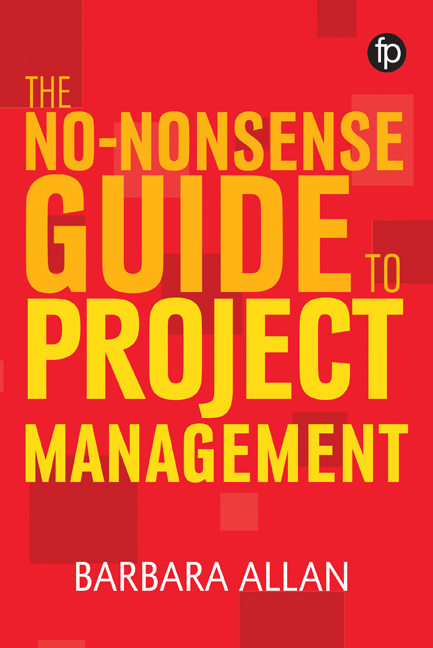Book contents
- Frontmatter
- Contents
- List of tables and figures
- List of case studies
- Acknowledgements
- 1 Introduction to the book
- 2 An overview of project management
- 3 Getting started
- 4 Planning the project
- 5 Implementation
- 6 Evaluation and dissemination
- 7 Using ICT to support project work
- 8 The money side of projects
- 9 The people side of projects
- 10 Working in partnership
- Index
1 - Introduction to the book
Published online by Cambridge University Press: 08 June 2018
- Frontmatter
- Contents
- List of tables and figures
- List of case studies
- Acknowledgements
- 1 Introduction to the book
- 2 An overview of project management
- 3 Getting started
- 4 Planning the project
- 5 Implementation
- 6 Evaluation and dissemination
- 7 Using ICT to support project work
- 8 The money side of projects
- 9 The people side of projects
- 10 Working in partnership
- Index
Summary
Introduction to the chapter
This chapter introduces the concept of project management and its application in library and information services, and it considers the following topics:
• different types of projects
• project work and the library and information profession
• professional development in project management
• how to work as an effective project manager or team member.
This is followed by an overview of the structure and contents in this book,
No-Nonsense Guide to Project Management..
About this book
This book provides a practical guide to project management in the context of library and information work. Project work is widespread across the sector and colleagues may work on relatively small-scale local projects, such as introducing family history workshops within a public library service, or large complex projects, such as developing shared services across a number of libraries. Small-scale and simple projects may be led by an individual who works on the project by themselves or with a small team. In contrast, complex or large-scale projects may involve people from different professions and organisations, and they may be managed by a team of professional project managers.
This book introduces a wide range of tools and techniques used in project management within library and information services, and gives examples and case studies taken from a variety of projects from many different kinds of library and information services in the UK and across the world. Readers may use this book to gain an understanding of different approaches to project management and their suitability for different types of projects. The book also considers the people side of projects, including how to manage change (essential for strategic projects) and how to work in partnership.
Introduction to project management
What is a project? A simple definition of a project is that it is an activity that:
• has a clear aim and set of outcomes
• involves innovation and change
• has limited resources, e.g. staff time, budget
• has an agreed start and end date.
These are some examples of common projects within library and information services:
• moving a library
• introducing a new service
• developing shared services
• digitising a collection
- Type
- Chapter
- Information
- The No-nonsense Guide to Project Management , pp. 1 - 20Publisher: FacetPrint publication year: 2017



